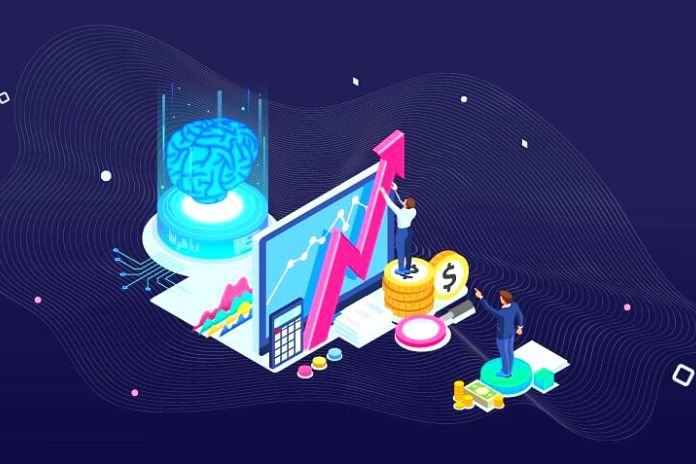Data Science, Big Data And Data Analytics: Difference
Do you know what Data Science is? What about Big Data and Data Analytics? Surely you have heard that “data is the new oil.” In a very summarized way, we can say that data is a value assigned to something.
They can be qualitative, quantitative, for humans, or machines… we are immersed in a universe with the most varied data! All this infinity of information offers enormous potential for the most diverse business sectors. However, few people can interpret them. There is difficulty in understanding the change in the market and the relationship between companies and society.
In this scenario, data opens the door to digital transformation. They generate insights, optimize processes and provide inputs for strategic decisions. Therefore, taking a moment to specialize in the area is a valuable opportunity for those who want to stand out in the market and build a successful career.
It is common to have doubts when choosing a specialization. In this article, we comment on the particularities and differences between Data Science, Big Data, and Data Analytics to provide the correct information for your choice to be more precise and more suited to your profile.
What Is Big Data?
To know a little more about the concept of Big Data, first of all, it is essential to understand what data is. How are they generated? How do they influence our lives? How to use such information in the best way?
Nowadays, almost everything we do generates data. This issue may appear at some stage of delivery or handling of information. Some data is recorded in banks, search engines, e-commerce, telephone services, and many others.
In this context, the concept of Big Data emerges. Briefly, Big Data is related to the ability to describe the massive volume of data generated and its proper storage and analysis.
The Big Data differential is the possibility of crossing data through the most varied sources to obtain valuable information and insights. In other words, such analysis generates value for the business, making it essential in the market today. In the Big Data universe, we have two types of data structuring. Are they:
Structured Data
They are data that have an organized structure. Categories, clusters, and definitions separate them. They can inform contacts, sales, location, and profiles, among many others.
They are usually found in a database, where the information is well defined. Some examples are CRM software, HR systems, and financial systems.
Unstructured Data
They are the most complex to work with. There is no organized structure; it takes a person to read and prepare the information.
An example is data from social media such as YouTube, Instagram, news sites, etc., which simultaneously deal with different types of data. It takes human intervention to interpret interactions that robots cannot detect, such as irony in comments, sarcasm, or a sense of context.
What Is Data Science?
Data science or Data Science is data analysis more technically. It requires in-depth programming knowledge, unstructured data analysis, and an understanding of specific technologies such as Python, SAS, Java, Perl, and platforms such as Hadoop and SQL.
It works to find patterns in the collected data. They are more complex analyses and methods involving statistics and mathematics, in addition to requiring the professional’s ability to solve problems. It thus allows extracting information from the collected data, providing guidelines for strategic action.
What Is Data Analytics?
Data Analytics is the science that intelligently examines raw data collected in Big Data and Business Intelligence tools. It is possible to draw conclusions and various information about the analyzed data.
To work with data analysis, having the ability to transform data into clear and easy-to-understand information is critical. It is not enough to understand the calculations and graphs; it is necessary to have the creativity to present the results.
What Are The Differences Between The Three Terms?
Data volume is the main difference between Big Data and Data Science. The first concept has vast data, which arrives quickly and comes from all types and sources.
The difference between Data Science and Data Analytics is related to technical knowledge. While the data scientist understands programming and knows how to use specific platforms, the data analyst must have a very developed analytical capacity and affinity with numbers and statistics. Knowing the programming languages helps, but it is not the focus of a Data Analytics specialist’s work.
How To Choose The Best Option To Specialize?
There is no correct way to choose which option to specialize in. It is an individual choice based on the profile and personal and professional goals. The important thing is to reflect on your creativity, analytical capacity, ability to solve problems and propose solutions, and affinity with programming and exact areas, such as mathematics and statistics.
A Data Analytics course may be ideal if you desire to pursue a more analytical career, treating data and turning it into reports. But the Data Science course is the most recommended if your interest is more significant in artificial intelligence, programming, algorithms, and other technology-related topics.
But one thing is sure: Big Data is a booming area. The market is looking for qualified professionals to work with data, and the time to train is now. For those who want to innovate and get ahead of competitors, a specialization in the area in a prominent place and with qualified professionals is one of the best ways to take your career to another level and set off in search of professional success.
Also Read: Why Use Artificial Intelligence Applied To Your Business?
Share this content:












Post Comment